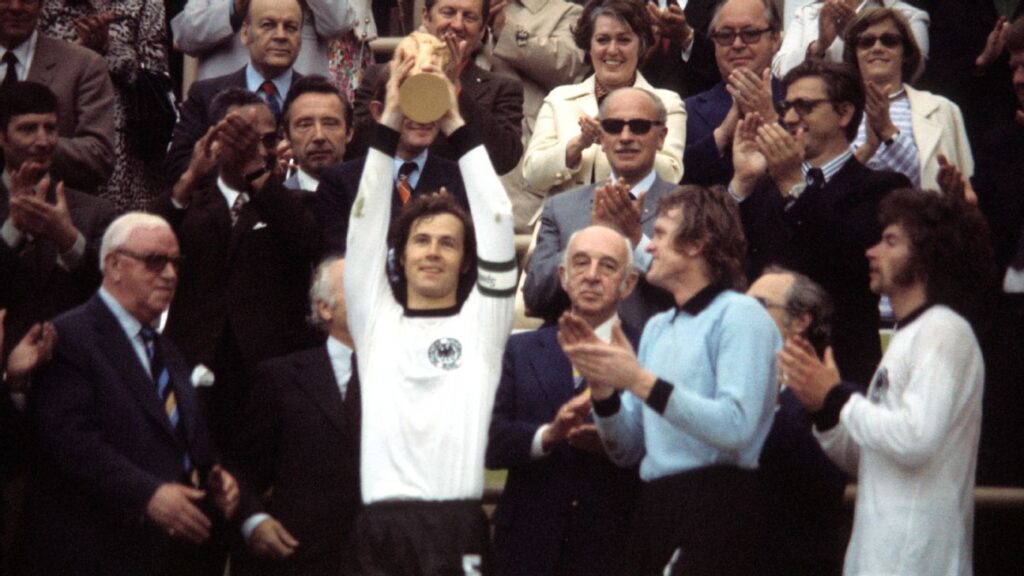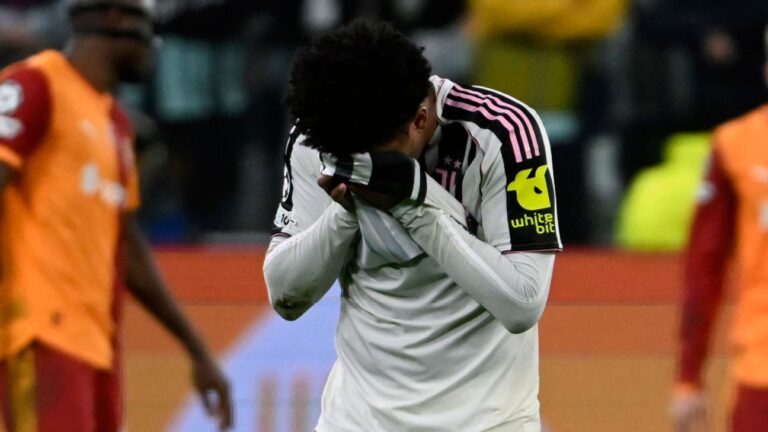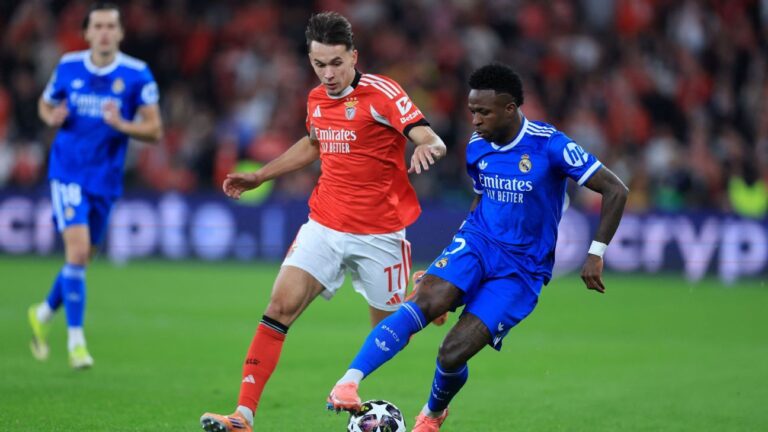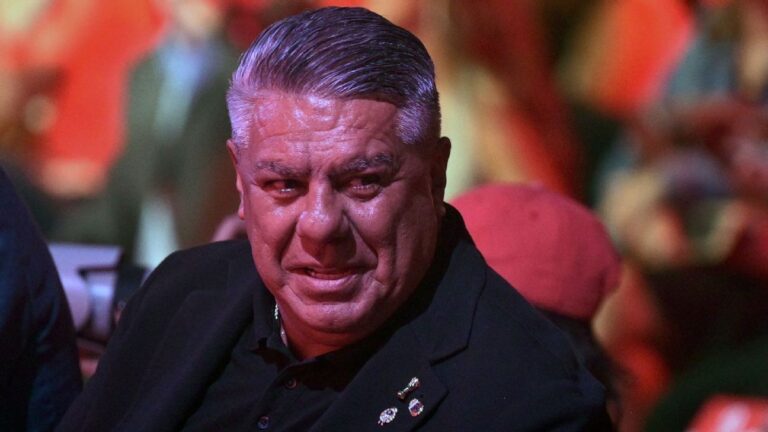Franz Beckenbauer, a World Cup winner with West Germany as a player and coach who was regarded as one of the greatest footballers of all time, has died at the age of 78.
German news agency DPA said the family confirmed Beckenbauer’s death via statement.
“It is with deep sadness that we announce that my husband and our father, Franz Beckenbauer, passed away peacefully in his sleep yesterday, Sunday, surrounded by his family,” the family said.
“We ask that you allow us to grieve in silence and refrain from asking any questions.”
Beckenbauer, born in Munich, shaped German football as a player, coach and official. His elegance and leadership qualities on the pitch with Bayern Munich and his country won him the nickname “Der Kaiser,” which translates as “The Emperor.” Pelé called him “one of the best I ever saw play.”
He won the 1972 and 1976 Ballon d’Or awards and was named Germany’s Footballer of the Century in 2000. He received the FIFA Centennial Player and Football Personality Award in 2004.
Beckenbauer defined the role of the Libero, the free player behind the defensive lines who set the pace of the game.
Winning 103 caps for Germany between September 1965 and February 1977, he led Germany’s “golden generation” to the 1972 European Championship and triumphed on home soil at the 1974 World Cup.
Beckenbauer is one of three people to have won the World Cup as both a player and coach, alongside Mário Zagallo with Brazil and Didier Deschamps with France.
At club level in Germany, he won three European Cups, a European Cup Winners’ Cup, five Bundesliga titles and four German cups with Bayern Munich and Hamburg.
In a statement, Bayern wrote: “The world of FC Bayern is no longer what it used to be — suddenly darker, quieter, poorer.
“Germany’s record champions mourn the loss of Franz Beckenbauer, the unique ‘Kaiser,’ without whom Bayern would never have become the club it is today.”
Uli Hoeness, Bayern’s honorary president who played with Beckenbauer for both club and country, added: “Franz Beckenbauer is the greatest personality FC Bayern has ever had. As a player, coach, president, person: unforgettable. Nobody will ever match him.”
After playing for Bayern, Beckenbauer moved to New York Cosmos in 1977 with his move to the United States signaling the end of his international career.
He won three North American Soccer League trophies alongside Pelé while playing in the U.S.
Beckenbauer returned to Germany in 1980, winning his final trophy as a player with Hamburg and, following another brief spell with the Cosmos, retired from professional football a day after his 38th birthday in 1983.
The following year, Beckenbauer took over as Germany head coach, reaching two World Cup finals and masterminding a 1-0 victory over Argentina in the final of the 1990 tournament in Italy.
Rudi Völler, the German Football Association’s (DFB) director of the senior national team and forward in that triumphant 1990 World Cup team, said: “I consider it one of the great privileges of my life to have known and experienced Franz Beckenbauer.
“Our time together with the national team was crowned with the 1990 World Cup title in Rome, a title that would never have been possible without his outstanding coaching performance.
“In Franz Beckenbauer, German football is losing its greatest personality — I am losing a good friend.”
Lothar Matthäus, captain of that 1990 side, said: “The shock is deep, even though I knew that Franz wasn’t well. His death is a loss for football and for Germany as a whole. He was one of the greatest as a player and coach, but also off the pitch.”
Olaf Scholz, Germany’s chancellor, paid tribute to Beckenbauer on X, formerly Twitter, describing him as one of Germany’s greatest-ever footballers who inspired German football for generations.
Beckenbauer won the French league title as Marseille coach the following year and added two more trophies during two stints back at Bayern later in the decade.
He served as Bayern president, leaving the post in 2009, and as an official helped Germany win the right to host the 2006 World Cup, traversing the country by helicopter to watch 46 of the 64 matches played.
In 2015, Beckenbauer denied that votes had been bought in the bidding process for the 2006 tournament after reports alleged that a slush fund of £4.8 million ($6.1m) had been used to procure votes for Germany.




